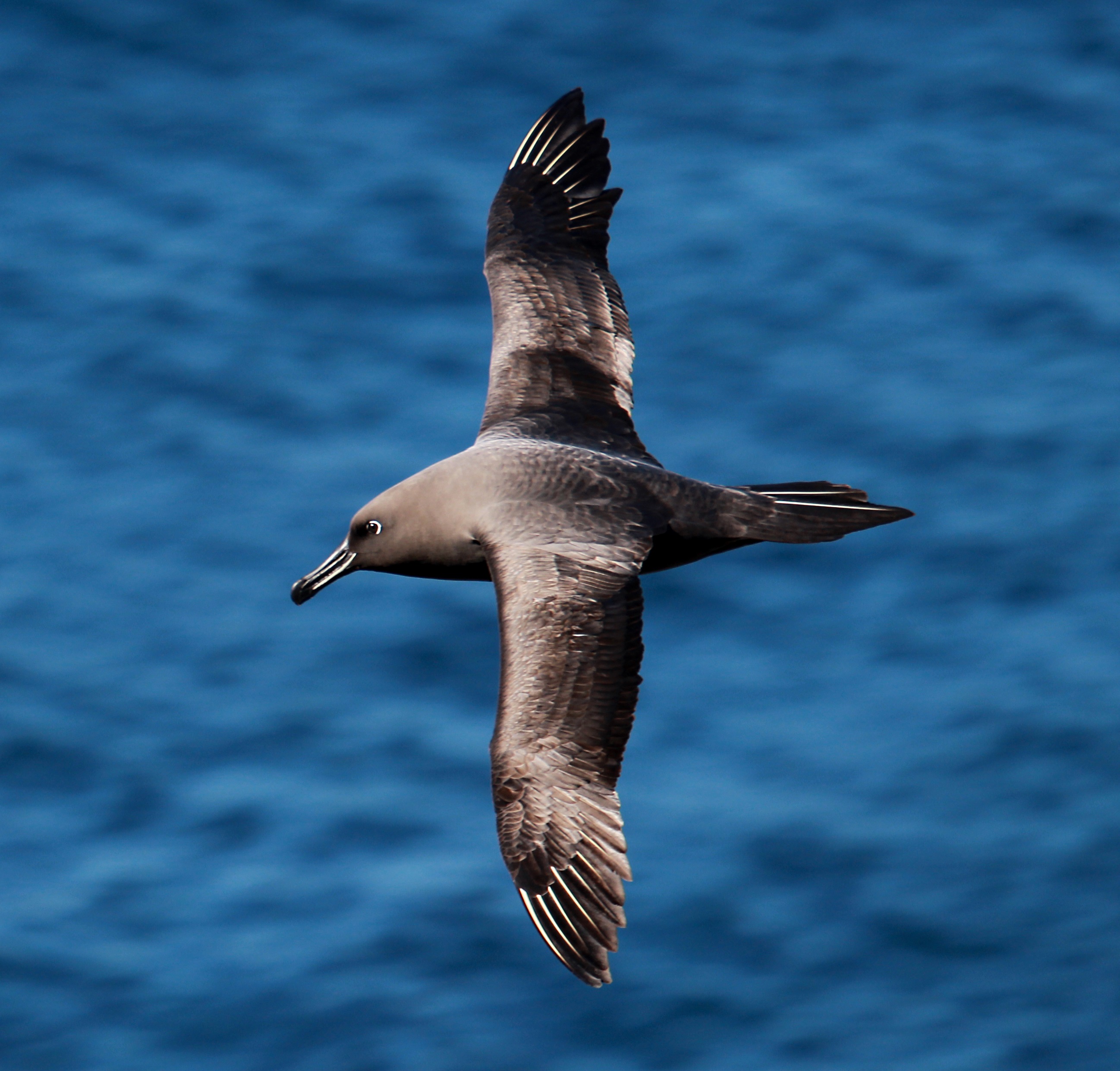
A Sooty Albatross in flight, photograph by Stefan Schoombie
Shamiso Banda (Marine Apex Predator Research Unit, Nelson Mandela University, Gqeberha, South Africa) and colleagues have published in the open-access ICES Journal of Marine Science on interactions with fishing vessels by tracked Sooty Albatrosses and White-chinned Petrels from Marion Island.
The paper’s abstract follows:
“Bycatch risk assessments typically rely on spatial overlaps between seabirds and fishing vessels but should also consider seabirds’ position in the attraction spectrum. Investigating seabird-fishery interactions in relation to habitat use is vital for species-specific risk assessments. To address this, we studied interactions between sooty albatrosses (SA) and white-chinned petrels (WCP) with fisheries. GPS data from 20 SA and 18 WCP individuals from Marion Island were analysed alongside Automatic Identification System-derived boat locations over two breeding seasons. We calculated encounter and attraction rates and correlated them with marine habitat characteristics. SA interactions occurred in deeper, warmer waters compared to their foraging habitat when vessels were absent, with 20% of individuals encountering and only 5% being attracted to boats. In contrast, WCP interactions occurred in shallow, warm South African shelf waters, consistent with their typical foraging habitats, with 72% encountering and 56% attracted to boats. These results highlight the need for continued reinforcement of mitigation measures for WCP. Despite the low attraction rates for SA, ongoing vigilance is required due to their smaller population size, which heightens the potential impact of illegal fisheries. The comparison of species along an attraction spectrum contributes to refining risk assessments and informs species-specific conservation strategies.”

A White-chinned Petrel in flight, photograph by Kirk Zufelt
Reference:
Banda, S., Pistorius, P., Collet, J., Corbeau, A., Weimerskirch, Pajot, A., Keys, D.Z. & Orgeret, F. 2023. Gauging the threat: exposure and attraction of sooty albatrosses and white-chinned petrels to fisheries activities in the Southern Indian Ocean. ICES Journal of Marine Science doi.org/10.1093/icesjms/fsad176.
John Cooper, Emeritus Information Officer, Agreement on the Conservation of Albatrosses and Petrels, 28 November 2023

 Español
Español  English
English  Français
Français